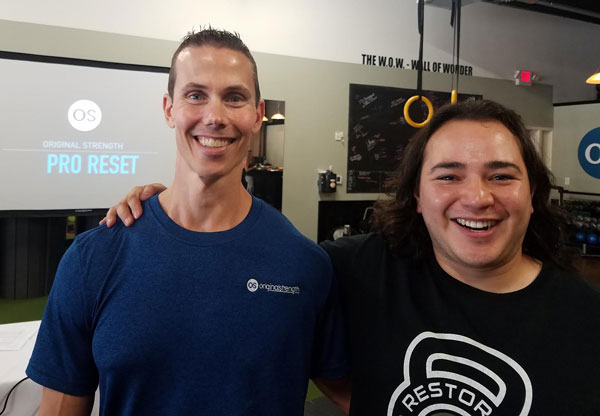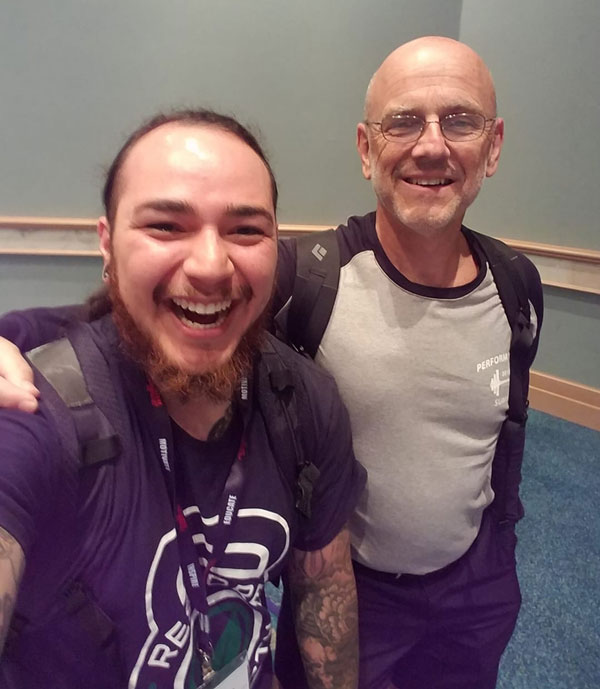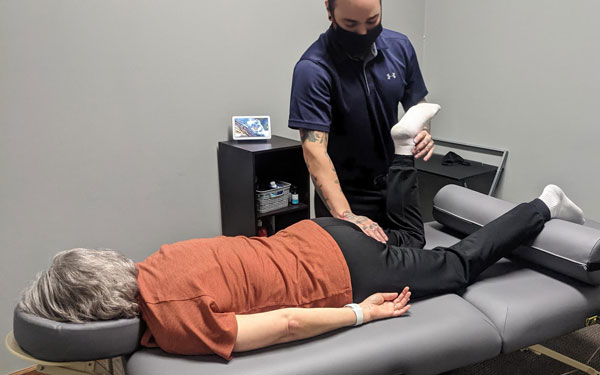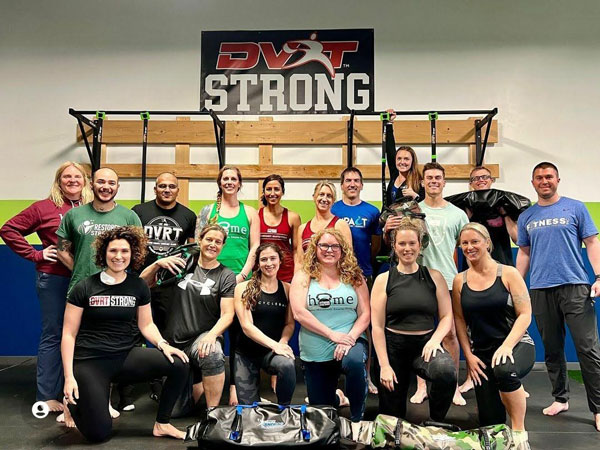Why Kettlebells Should Be The Foundation for Your Functional Fitness
By William Sturgeon, RKC Team Leader
The year was 2014 and I was in my second semester of college studying Exercise Science at Alexandria Technical Community College when I was first introduced to Functional Fitness. Functional Fitness is exercise that supports the body for the activities of daily living such as walking, squatting, bending, pushing, pulling, lunging, and getting up and off the ground.
The way that functional fitness was presented to me was in the form of a
kettlebell.
We had a guest speaker from a local gym come in and talk to us about the benefits of kettlebell training and how to use them. At the end of class, the speaker asked if anyone had questions and I asked him if I could replace my cardio with kettlebell training in which he happily stated yes you can. After that day I was sold on the idea of
kettlebell training and signed up for my first
kettlebell certification that summer.
While training for my certification I hired another
kettlebell trainer in town who introduced me to a wider spectrum of functional fitness and fitness professionals. I was completely sold and bought into the idea of using fitness as a means to improve the quality of someone’s life. Most times when we think of fitness we think its only purpose is vanity, which is not true.
The RKC set the foundation for teaching others how to move better and get stronger using
kettlebells. There are 6 foundational movements that were taught, along with dozens of other exercises to help build up to or add to these movements. The movements were the
kettlebell swing, clean, snatch, press, squat, and Turkish getup. At this certification I was introduced to other fitness professionals with great refences to other resources and different schools of thought for functional fitness.
After passing my
RKC that summer I would begin a life-long journey of studying functional fitness to further enhance my education and understanding of the human body. I would go on to study from some of the best in the industry who were teaching functional fitness.
After my kettlebell certification I sought out my next certification which was the Functional Movement Screen created by Gray Cook. This was a great foundation for further understanding movement patterns and how to identify areas of compensation in the body during movement. They taught 7 foundational movement patterns which were overhead squatting, shoulder mobility, active leg raise, inline lunge, hurdle step, trunk stability push up, and rotary stability. Along with the screening process they would offer exercise corrections to help improve these compensational patterns.
I would go on to study the teachings of Tim Anderson, the co-creator of Original Strength. Tim and his team focus on teaching people how the vestibular system can be strengthened through 5 simple, but complex movement patterns such as breathing, head control, rolling, rocking, and crawling. All movements that came natural to us when we were children and as we age we lose our ability to do these movements. I’ve seen some amazing things from just breathing, which in itself can be an entirely different article.

My journey would then go to the studies of Natural Movement from Erwan Le Core. Movnat was one of the most exciting and unique approach to fitness where they bring us back to nature. The foundation of this educational system stems from the teachings of Georges Hebert, a pioneer of physical education. The goal of MovNat is to teach people how to walk, run, crawl, climb, balance, jump, swim, lift, throw, and fight. This was his idea of how we were intended to move and improve our health.
My next stop would be to study under the great Mike Boyle, the creator of Certified Functional Strength Coach. Mike has a very simple and easy to understand approach of systematizing the complexity of exercise progression and regression. He has had over 30 years of experience utilizing and teaching people how functional fitness works. He uses plenty of different modalities to incorporate stretching, foam rolling, strength, power, and conditioning.

I went on to study NASM’s Corrective Exercise Specialization course while attending school for massage therapy to help further my understandings of correcting movement compensation and dysfunction that could lead to injury. This was by far one of the most detailed courses I’ve taken in understanding the human body and the anatomical understandings of movement dysfunction and unique strategies to help correct these patterns. They did a great job at explaining the regional interdependence model which is similar to Mike Boyle’s joint by joint approach.

My most recent journey was spending the last year studying the
DVRT system from Josh Henkin, former Master RKC. I took his DVRT Level one and Two along with his Restoration course. A common misbelief is that this is a course on how to use sandbags. This is a piece of the education, but the biggest take away is more about how to use a different lens to progress exercise and movement. What I liked most about this is how he teaches people to use their body to progress more rather than adding more weight. It’s utilizing different planes of motion, unique ways of holding tools and stabilization of the body. This course was one of those that needs time to sink in and use an open mindset to understand the complexity of his teachings.

One thing all of these courses had in common was that they believe that incorporating kettlebells is a staple for functional fitness. Kettlebell training can be used to enhance your strength, conditioning, athletic abilities, correcting movement, and creating greater stability in the body. By becoming an
RKC Trainer you are setting yourself up for success by starting off with a strong foundation. From there you can explore the many avenues that functional fitness has to offer to enhance your ability to get your clients results and develop a niche as a
fitness professional.
Back